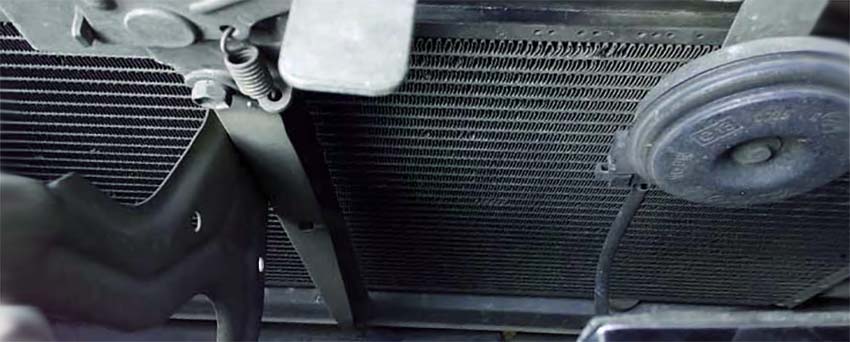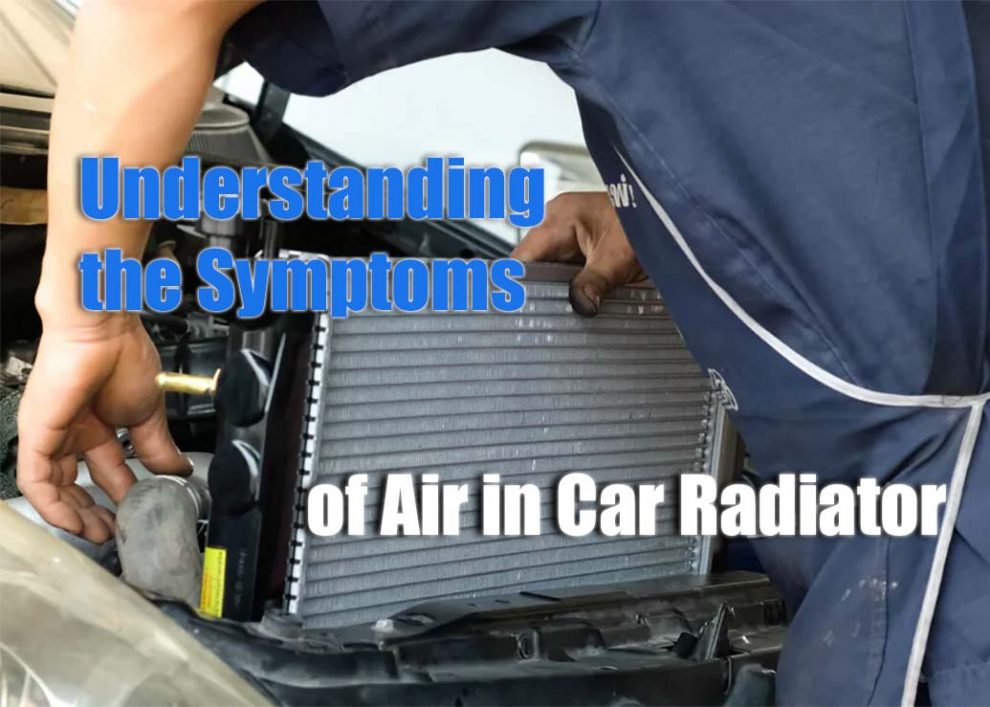The radiator in your car is a critical component that ensures your engine runs smoothly and efficiently. It is responsible for maintaining the temperature of the engine, absorbing the excess heat generated during the combustion process. The radiator does this by circulating a mixture of water and antifreeze, commonly known as coolant, through the engine block and cylinder head. As the coolant travels, it absorbs the heat and then returns to the radiator where the heat is expelled into the atmosphere. Without the effective functioning of this crucial component, your engine could suffer from overheating, leading to severe damage, decreased performance, and potentially expensive repairs.
Understanding Air Trapped in Radiators
In an ideal circumstance, your radiator should only contain the coolant, which is essential for heat absorption and dissipation. However, there are instances when air can sneak into the system, resulting in what’s known as an ‘air lock’. This situation is more than just a minor inconvenience. The air trapped in the radiator can create a barrier that hinders the proper circulation of the coolant, thereby limiting its ability to absorb and dissipate heat efficiently. Recognizing the symptoms of air in your radiator and addressing them in a timely manner is crucial to preventing substantial engine damage and maintaining your vehicle’s optimal performance.
Symptoms of Air in Radiator
Identifying air in your radiator can be somewhat tricky as the symptoms might be subtle initially. However, there are several signs that you can watch out for. These include inconsistent engine temperature readings, unexplained coolant leaks, recurring instances of engine overheating, gurgling or bubbling noises emanating from the radiator, and a heating system inside the car cabin that doesn’t seem to work as efficiently as it should. If you start noticing one or more of these symptoms, it’s highly advisable to investigate further and if necessary, seek professional help to rectify the issue.
Implications of Ignoring Trapped Air in Radiators
Ignoring the symptoms of trapped air in your radiator can lead to significant problems. As the trapped air impedes the flow of coolant, your engine can overheat, causing costly damage, including a blown head gasket or even a cracked engine block. Over time, ignoring these issues could lead to decreased fuel efficiency and performance, and in severe cases, complete engine failure. Therefore, it is always important to address these symptoms promptly and ensure your radiator, as well as the overall cooling system, is functioning as it should.
How Air Gets into the Radiator
Air can find its way into the radiator in several ways. Typically, it can enter during coolant replacement if the system is not properly refilled and bled. It can also sneak in if the radiator cap or the coolant reservoir cap is not secured properly. Other causes can include leaks in the cooling system or when parts of the cooling system are replaced or repaired.

How to Remove Air from Radiator
The process of removing air from the radiator, often known as ‘bleeding,’ typically involves running the engine with the radiator cap off, allowing the trapped air to escape. Some vehicles may also require the use of a special bleeding screw. While this is a task that many car owners can undertake themselves, if you’re unsure, it is always best to seek the help of a professional mechanic.
Best Practices for Radiator Maintenance
Keeping your radiator in good condition is not just about addressing problems when they arise. It’s also about preventive maintenance. Regularly checking the coolant level, ensuring the radiator cap is secure, and using the best cold air intake for Jeep Liberty or any other vehicle you have, are all practices that can help prevent air from entering the system. Regular servicing and inspections by a professional can also go a long way in maintaining the health of your radiator.
Conclusion
In conclusion, the radiator is a vital component of your vehicle, playing an indispensable role in maintaining engine temperature and overall performance. Recognizing the symptoms of air trapped in your radiator and understanding how to address them can significantly enhance the lifespan of your vehicle. With the correct approach, including regular maintenance, inspections, and using quality parts, you can avoid potential damage and costly repairs. Never ignore the signs of an air lock in your radiator—prompt action could save your engine and keep your vehicle running smoothly for years to come.


Add Comment